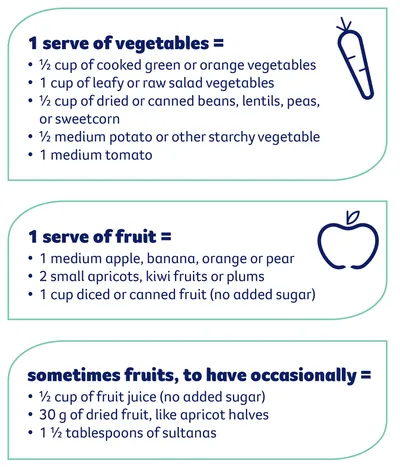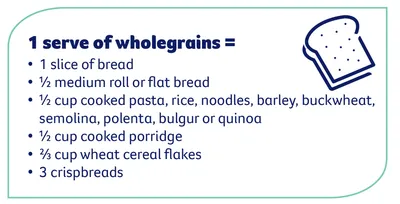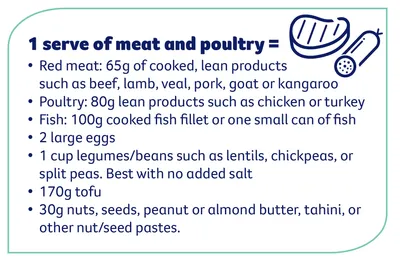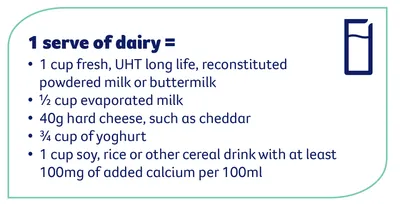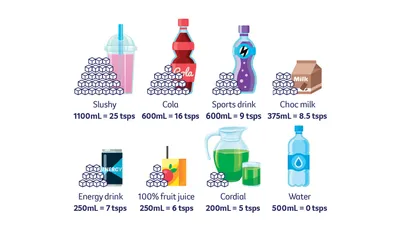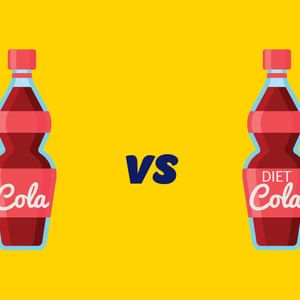What should I eat to help prevent cancer?
A healthy, balanced diet that helps us maintain a healthy weight, can help protect us against cancers associated with excess body weight. It can also reduce your risk of cancer directly, particularly cancers of the gastro-intestinal tract.
So, what does healthy, balanced diet look like?
- Eating plenty of vegetables, including legumes (beans, peas and lentils), fruit and wholegrain foods daily.
- Eating moderate amounts of lean red meat (around 455 g cooked or 700 g raw) each week.
- Avoiding processed meats such as salami, bacon, ham, chorizo and corned beef.
- Eating fish (preferably oily types) at least twice per week.
- Limiting your intake of junk food and sugary drinks. Eating dairy products daily - if you choose dairy alternatives, make sure they have added calcium.
Vegetables and fruit
Vegetables and fruit contain essential nutrients including dietary fibre, which is known to protect against bowel cancer.
Eating a variety of different coloured vegetables and fruit every day will provide a range of nutrients to help reduce your cancer risk.
Fresh, frozen, dried or canned can all be chosen as part of a healthy diet.
How much vegetables and fruit should you eat?
For a healthy diet, aim to eat five serves of vegetables and two serves of fruit every day.
Dietary fibre and wholegrains
Almost 20 per cent of bowel cancers could be prevented if Australians met their daily dietary fibre requirements.
So, what is dietary fibre?
Dietary fibre is found in plant foods such as vegetables, fruits, wholegrains, legumes, nuts, and seeds. As it cannot be digested in the stomach or small intestine, it passes relatively unchanged into the large intestine where it’s fermented by bacteria. It’s this fermentation that boosts our gut health and reduces our risk of bowel cancer.
Some of the best sources of dietary fibre are fruits, vegetables, nuts, and seeds. Other healthy sources include wholegrain breads or wraps, couscous, quinoa, brown rice, wholemeal pasta, high-fibre cereals, muesli and oats.
How does fibre reduce your risk of bowel cancer?
- It binds carcinogens to the stool and expels them from the body.
- The good bacteria in the colon converts fibre into short-chain fatty acids. Short-chain fatty acids reduce the ability of cells in the intestine to become cancerous.
- By slowing the absorption of carbohydrates into the blood, it reduces insulin resistance, therefore reducing risk of diabetes and some cancers.
- We feel fuller for longer when we eat fibrous food, and that can help us with portion control and maintaining a healthy weight.
How much fibre should you be eating to reduce bowel cancer risk?
Every day, men should be aiming to eat 30 g of dietary fibre and women should be aiming for 25 g of dietary fibre.
Need more ideas to help meet your daily fibre requirements?
What is a serve of wholegrains?
Red and processed meat
Lean red meat is an important source of protein and essential nutrients such as iron and zinc in our diets, and can be included in moderation as part of a healthy diet. There is, however, strong evidence to suggest that processed meats such as salami, bacon, ham and chorizo can increase your cancer risk.
Here are some suggestions for including meat in a healthy, balanced diet
- Choose lean cuts of red meat such as beef, pork and lamb.
- Eat moderate amounts of lean red meat – this means a palm-sized portion served up to three or four times a week (no more than 455 g cooked/700 g raw per week).
- Eat fish (preferably oily types) at least twice a week.
- Replace processed meats such as salami, bacon and ham with healthier alternatives.
- Limit consumption of burnt or charred meat.
- Consider alternatives to red meat at dinner including chicken, tofu and legumes.
Find meat serving recommendations for younger children here.
Find meat serving recommendations for pregnant or lactating women here.
What is a serve of meat?
Dairy foods and calcium
Research into dairy foods, calcium and cancer risk have shown to have both protective and potentially harmful effects. However, due to the strong body of evidence to support the health benefits of eating dairy foods, Cancer Council recommends including them as part of a well-balanced diet.
Learn more about how much dairy you should eat here.
What is a serve of dairy?
Sugary drinks
Sugary drinks are high in energy (kilojoules) and provide no other essential nutrients. Regular consumption may lead to weight gain and obesity, which can increase the risk of health problems including tooth decay, type 2 diabetes, heart disease, and some cancers.
What is a sugary drink?
Sugary drinks are drinks that are low in nutritional value, but high in kilojoules. This includes products such as:
- Soft drinks (excluding diet or no sugar varieties)
- Sweetened flavoured mineral water or sweetened vitamin water
- Sports drinks
- Energy drinks
- Sugar sweetened teas
- Fruit and vegetable drinks
- Cordial
Are ‘diet’ or sugar-free drinks healthier?
While ‘diet’ or sugar-free drinks do not contain the same level of kilojoules as sugar-sweetened versions, they are highly acidic and can lead to tooth decay. They also offer zero nutritional value.
Some studies also link the sweetness of artificial sweeteners to stronger cravings for sweet foods and drinks.
Learn more about sugar-free and diet drinks.
What are good replacements for sugary drinks?
Water and low-fat milk are the best replacements. Tap water is free, contains no kilojoules and is the best drink for hydration. However, if you would like some variety in your water, try:
- A squeeze of lemon or lime juice
- Ice cubes made from fruit
- Soda water or plain mineral water

